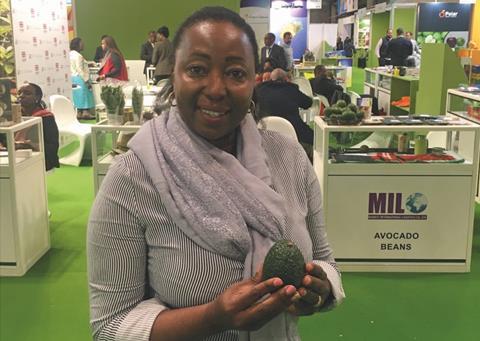Excessive rain and the ongoing Red Sea crisis have created headaches for Kenyan avocados this season, delaying ripening and increasing the transit time to their main market in Europe
Despite the recent floods in Kenya, the avocado season at grower-exporter Karakuta has been relatively unaffected, according to CEO Grace Ngungi.
“The rainy season brought more rain than usual,” she said, “but this typically reduces irrigation needs, increases yields and enables us to attain a bigger fruit size throughout the season.”

Grace Ngungi, CEO of Karakuta
Karakuta’s farm, located in Juja, stands 1,600m above sea level, she says. The area receives around 130mm of precipitation annually, and the tropical climate gives the fruit a creamy rich taste, according to Ngungi.
However, the longer than usual rainy season delayed the ripening of the fruit, she said. “Usually we reach a dry matter of 22-23 per cent by March, but this year it was around 19-20 per cent, so we only entered the market in April, which is slightly late,” explained Ngungi. “This had a negative impact on our sales, especially with the arrival of Peruvian fruit in June and July.”
Late ripening meant missing out on the high prices usually received for early avocados in March. “We continued to export the large size fruits in May and into June,” said Ngungi, “but these volumes failed to cover the lost sales expected in March. Competition from Peru also resulted in lower market prices for Kenyan avocados.
“Additionally, the ongoing Red Sea crisis increased our transit time to Europe and the UK, hence reducing our trading month even further, as well as increasing our freight costs significantly. This impacted the dynamism of the supply chain.”
According to Ngungi, when the European window reopened after Peru’s supply period in mid-June, the dry matter of Karakuta’s avocados was too high to withstand the long voyage of 40 days to Europe. To mitigate such risks, Karakuta is striving to penetrate markets like China and India.
“Our current relationships with suppliers in these Asian markets are still developing and immature,” she said. “We hope to establish more reliable connections soon to enhance our market presence in these regions, while positive lobbying from the government can boost Kenya’s competitiveness in these two markets.”



